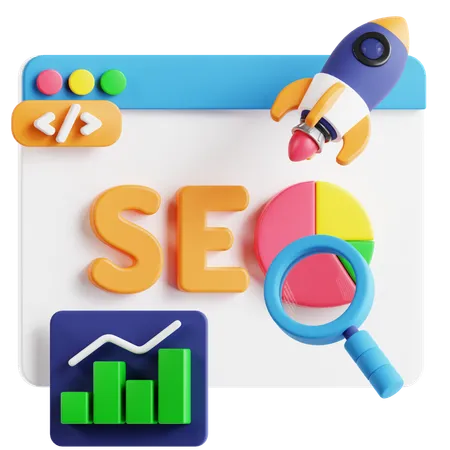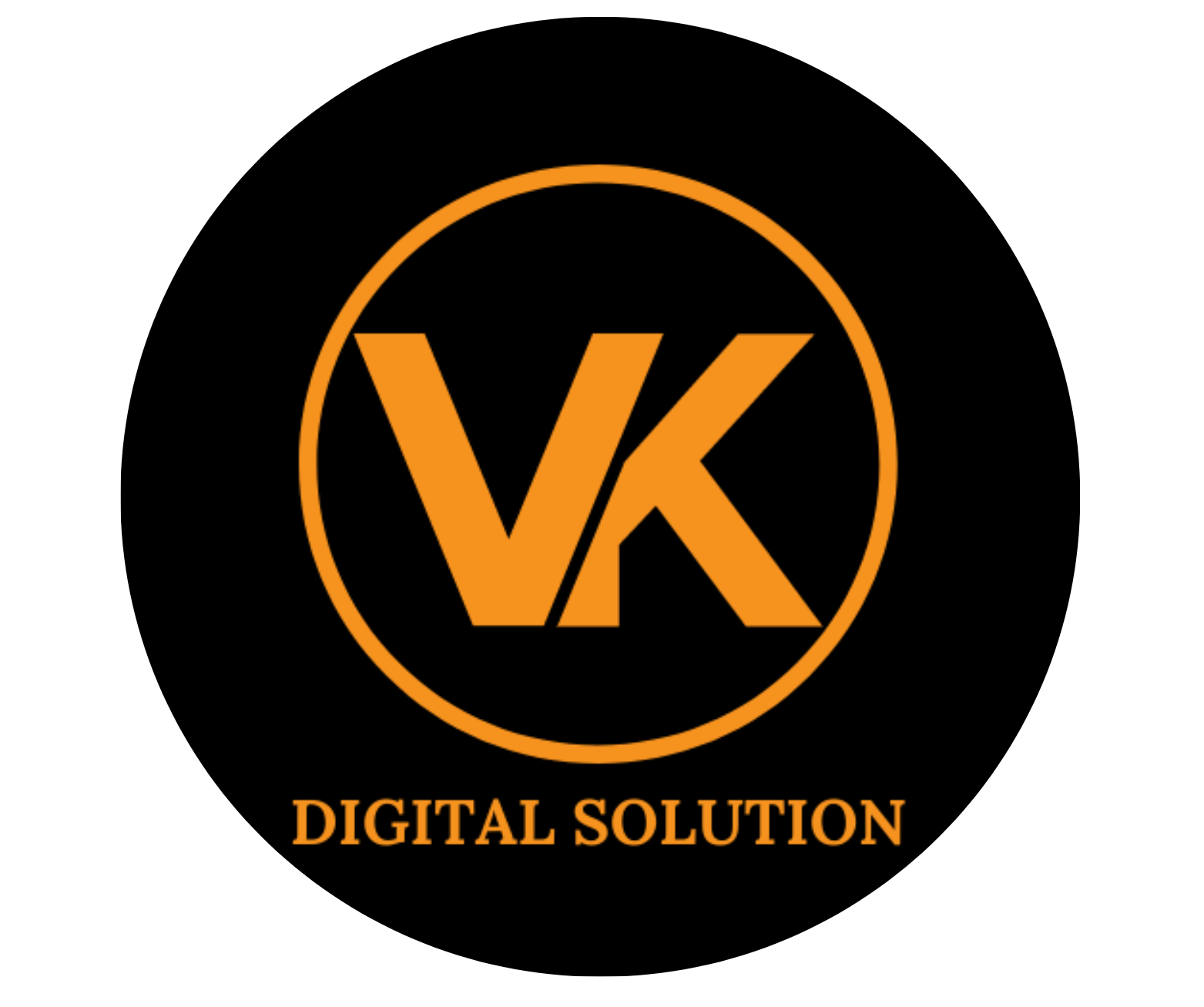OnPage SEO Services
Get the Best OnPage SEO Services from Top-Rated SEO Experts in India
VK Digital Solution stands out as the premier provider of OnPage SEO services in India. Our seasoned team of SEO experts excels in delivering unparalleled on-page optimization solutions to clients spanning diverse industries. We ensure that all content is plagiarism-free and crafted for human readability, guaranteeing maximum impact and effectiveness.

What Is OnPage SEO?
onpage seo services involves optimizing a website’s individual pages to improve their search engine friendliness for specific keywords and target audiences, ultimately boosting their ranking in search engine results pages (SERPs). The goal is to make your website easy to discover and navigate. There are numerous techniques that businesses and website owners can employ to achieve this. These include creating high-quality, relevant content for their audience, incorporating relevant keywords into their content and meta tags, and ensuring their website is visually appealing and user-friendly.
A crucial aspect to keep in mind regarding On-Page SEO is its focus on delivering an exceptional user experience. This entails ensuring your website is user-friendly, loads swiftly, and offers pertinent and captivating content that entices visitors to return. It also involves ensuring your website is compatible with mobile devices, given the increasing number of individuals accessing the internet through their smartphones and tablets nowadays.

What Is Included In On-Page SEO Services?
Included in onpage seo services are essential factors crucial for enhancing a website’s performance. These encompass utilizing descriptive and keyword-rich titles and meta descriptions, structuring content with header tags, and optimizing images and videos with detailed alt tags. By executing these strategies, businesses and website owners can enhance online visibility, attract organic traffic, and increase the likelihood of achieving higher rankings in search engine results pages (SERPs).
Our On-Page SEO Services Comprise
Content Optimization
Improving the quality and relevance of website content to boost search engine visibility.
Blog Evaluation
Assessing and optimizing blog content to align with SEO objectives.
Tracking Implementation
Setting up tracking tools such as analytics and search console for effective performance monitoring and analysis.
In-depth Keyword Research
Identifying high-intent keywords with minimal competition and substantial search volume.
Meta Tags Enhancement
Crafting meta tags to improve click-through rates (CTR).
Sitemap Development
Creating user-friendly sitemaps for both users and search engines.
Internal Linking
Enhancing website structure and facilitating efficient crawling through strategic internal linking.
Header Tags Optimization
Optimizing header tags to enhance content organization and SEO.
Alt Text Refinement
Ensuring images and videos are optimized with descriptive alt text.
Website SEO Audit
Evaluating user interface (UI), user experience (UX), call-to-action (CTA), and bounce rate for comprehensive optimization.
Robots File Configuration
Setting up and optimizing robots.txt files for improved search engine crawling.
Anchor Text Enhancement
Optimizing anchor texts for enhanced SEO performance.
Overview of On-Page SEO Services

Overall, keyword research plays a vital role in driving organic traffic to websites and improving their visibility in search engine results, ultimately contributing to the success of an SEO strategy.
Keyword Research
Keyword research is the process of identifying and analyzing the specific words and phrases that people enter into search engines like Google, Bing, and Yahoo when they are looking for information, products, or services online. This analysis helps website owners and marketers understand the language and terminology used by their target audience.
In the realm of search engine optimization (SEO), keyword research is crucial because it enables website owners to optimize their content effectively. By incorporating relevant keywords into website content, including titles, headings, and body text, website owners can increase the likelihood that their pages will appear in search engine results pages (SERPs) when users search for those particular terms.
Importance of Keyword Research in SEO
Why Keyword Research Is Vital for SEO Success
Key Reasons Why Keyword Research Is Essential for Effective SEO
Understanding Search Behavior
Keyword research enables a deep understanding of the search patterns and preferences of the target audience, aiding in crafting content that resonates with their interests and needs.
Insight into Competition
Through keyword research, businesses gain valuable insights into their competitors’ strategies and market positioning, identifying untapped opportunities and areas for differentiation.
Optimizing Content Relevance
By incorporating strategically chosen keywords into website content, businesses can ensure that their pages are more closely aligned with relevant search queries, thereby enhancing their visibility and attracting qualified traffic.
Enhancing SERP Ranking
Effective keyword research directly contributes to improving a website’s ranking on search engine results pages (SERPs), increasing its visibility to potential customers and driving organic traffic growth.
How Do We Do Keyword Research
Understand Your Audience
Begin by identifying your target audience and gaining insights into their search habits and preferences.
Generate Keyword Ideas
Brainstorm a comprehensive list of keywords that closely relate to the content and objectives of your website.
Assess Competition and Market Gaps
Conduct a thorough analysis of your competitors and the market landscape to identify areas of opportunity and gaps that your website can address.
Utilize Keyword Research Tools
Employ specialized keyword research tools to broaden your list of keywords, while also gauging the search volume and competition levels associated with each keyword.
Prioritize High-Value Keywords
Focus on selecting keywords that exhibit a combination of high search volume and low competition, as these present the greatest potential for driving targeted traffic to your website.
Incorporate Keywords Strategically
Integrate the chosen keywords seamlessly into your website’s content, including within title tags, meta descriptions, URLs, and other relevant areas, to enhance its relevance and visibility in search engine results.
Tools We Use For Keyword Research In SEO
Some popular keyword research tools are.
- Google Keyword Planner
- Ubersuggest
- Ahrefs Keywords Explorer
- Keyword Tool
- SEMrush Keyword Magic Tool
- Serpstat
- Moz Keyword Explorer
- SpyFu
These tools play a pivotal role in identifying pertinent keywords, assessing their search volume and competition levels, and gaining insights into competitors’ strategies. Additionally, we leverage a suite of SEO tools encompassing keyword analysis, on-page SEO optimization, and technical SEO functionalities.
Meta Tag Optimization
Meta tag optimization involves enhancing the metadata of a webpage to improve its visibility and relevance in search engine results. This includes optimizing meta titles, meta descriptions, and other meta tags to accurately reflect the content of the page and attract users’ attention in search engine listings. Proper meta tag optimization can positively impact click-through rates and ultimately contribute to improved search engine rankings for the webpage.

Importance Of Meta Tags
Meta tags play a crucial role in SEO by aiding search engines in comprehending the content of a webpage. They furnish essential information like the page title, description, and keywords, facilitating both search engines and users in grasping the page’s essence. Well-optimized meta tags can significantly enhance a webpage’s visibility in search engine results pages (SERPs) and allure more traffic to the website.
Writing SEO-Friendly Meta Tags
To craft SEO-friendly meta tags, adhere to the following guidelines
Craft unique and descriptive titles
Ensure the page title is concise, distinctive, and accurately reflects the page’s content. Incorporate the primary keyword and keep it within 60 characters.
Create a compelling meta description
Construct a succinct summary of the page’s content for the meta description. Include the primary keyword and limit it to 155 characters. Make it engaging to entice users to click through to the website.
Utilize relevant keywords
Integrate pertinent keywords into the title and description meta tags. Ensure these keywords align with the page’s content and flow naturally within the text.
Avoid duplicate meta tags
Each page on the website should possess unique meta tags to prevent duplication. This aids search engines in comprehending each page’s content accurately and ranking them accordingly.
Implement schema markup
Employ schema markup, a structured data type, to provide additional information to search engines about the webpage’s content. This can include details such as product reviews, prices, and ratings, enhancing the visibility and relevance of the page in search results.
Sitemap
A sitemap is a crucial file that enumerates all the pages within a website, encompassing their respective URLs and metadata. Its primary objective is to facilitate search engine crawlers in efficiently navigating and indexing all the pages on a website.
Sitemaps come in various formats, including XML, HTML, or TXT, and can be submitted to search engines to apprise them of the website’s structure and content. This enables search engines to comprehend the organization and hierarchy of the website, thereby potentially enhancing its search engine ranking.
Furthermore, sitemaps may contain additional details about each page, such as the date of last modification, update frequency, and relative importance compared to other pages on the site. This metadata aids search engines in determining which pages to crawl and how frequently to revisit them.
In addition to benefiting search engines, HTML sitemaps can also serve website visitors by offering a convenient means to navigate to different pages on the site. Some websites incorporate a link to their sitemap in the footer or navigation menu to ensure easy accessibility for users.


Robots File Optimization
Robots file optimization involves configuring and fine-tuning the robots.txt file on a website to control how search engine crawlers access and index its pages. This file, typically named “robots.txt,” serves as a set of directives for search engine bots, informing them which areas of the site they are allowed to crawl and index, and which areas they should avoid.
By optimizing the robots.txt file, website owners can ensure that search engines efficiently crawl and index the most relevant and important pages while avoiding crawling irrelevant or sensitive content. This optimization can help improve a website’s overall search engine visibility and performance.
How to Optimize Your Robots.txt File
- Have a robots.txt file: The first step in optimizing your robots.txt file is ensuring that you have one. Some websites lack a robots.txt file, which can result in search engine crawlers indexing all pages, including those that are irrelevant or shouldn’t be indexed.
Specify pages to crawl: Utilize the “Disallow” directive to specify which pages or directories should not be crawled by search engines. This may include pages with duplicate content, low-quality pages, or those unrelated to the website’s main topics. For instance, if there’s an “admin” directory containing sensitive information, it’s wise to disallow crawlers from accessing it.
Allow access to important pages: Ensure that the robots.txt file permits search engines to crawl essential pages on your site. Employ the “Allow” directive to specify which pages or directories should be crawled. For instance, granting access to your website’s homepage, product pages, or blog may be necessary.
Use wildcards: Employ wildcards to define patterns of pages or directories to disallow or allow. For example, the “*” wildcard can represent all pages in a directory or all directories containing a specific keyword.
- Test the robots.txt file: Verify the configuration of your robots.txt file using tools like Google Search Console or other testing utilities. This ensures proper setup and confirms that search engines can crawl the crucial pages on your website.
Optimizing Heading Tags for SEO
Heading tags, such as H1, H2, H3, etc., play a crucial role in on-page SEO optimization. These tags aid search engines in comprehending the organization and hierarchy of content within a webpage, enhancing its structure. Additionally, they contribute to a better user experience by facilitating easier readability and navigation of the content.

Optimizing Your Website’s Headings for Improved SEO
Utilize H1 tag for main headings: Employ the H1 tag for the primary heading of the webpage, incorporating the main keyword targeted by the page. This assists search engines in grasping the page’s topic, enhancing its relevance and ranking.
Employ H2-H6 tags for subheadings: Utilize the H2 tag for the initial subheading, followed by H3, H4, and so forth, in descending order of importance for subsequent subheadings. This establishes a clear hierarchy in the content, aiding search engines in understanding the relationships between different sections.
Maintain concise and descriptive headings: Ensure that headings are succinct and accurately depict the content that follows. They should align with the page’s topic and incorporate relevant keywords where applicable. Avoid generic or ambiguous headings that fail to accurately represent the content.
Implement CSS styling for headings: Instead of relying on larger font sizes to denote headings, utilize CSS styling to format the heading tags. This promotes consistency in heading appearance and mitigates potential issues with accessibility and mobile responsiveness.
Avoid excessive use of headings: While headings can enhance webpage readability and SEO, excessive usage can have adverse effects. Use headings judiciously and refrain from employing multiple H1 tags on a single webpage.
Content Optimization
Content optimization involves refining website content to enhance its visibility on search engines and attract more traffic.
How do we enhance your website’s content for superior SEO?
- Conduct keyword research: Foundational to content optimization, identify pertinent keywords used by your target audience and seamlessly integrate them into your content.
- Craft high-quality content: Generate informative, engaging content that is original, well-researched, and valuable to your audience.
- Optimize headings: Utilize descriptive headings (H1, H2, H3) containing primary keywords to aid search engines in understanding your content’s structure.
- Incorporate internal and external links: Integrate internal links to elucidate the relationship between different website pages and external links to authoritative sources for added context and value.
- Optimize meta tags: Title tags and meta descriptions offer a brief overview of webpage content. Use descriptive, keyword-rich meta tags to enhance search engine comprehension.
- Utilize multimedia: Enrich your content with images, videos, and multimedia elements to heighten engagement and visual appeal. Ensure all images have alt text for improved accessibility and SEO.
- Ensure readability: Enhance readability with concise paragraphs, bullet points, and clear language. Employ tools like Grammarly or Hemingway Editor for grammar and readability checks.
- Regular content updates: Maintain content freshness by consistently updating it with new information, statistics, or insights to keep your audience engaged and informed.

Optimizing Alt Text for SEO
Alt text, also known as alternative text, is descriptive text appended to an image on a webpage to elucidate its content.
It serves as a crucial aspect of on-page optimization in SEO, aiding search engines in comprehending the image’s content. Additionally, alt text enhances webpage accessibility for visually impaired users.
Optimizing Your Images for Enhanced SEO
Here's how we ensure your images contribute positively to SEO
- Descriptive Alt Text: Craft alt text that precisely describes the image content. Use clear, concise language, incorporating relevant keywords related to the webpage’s content.
- Conciseness Matters: Keep alt text brief and focused. Avoid lengthy or overly descriptive sentences that may not accurately convey the image’s content.
- Relevant Keywords: Incorporate pertinent keywords into the alt text when appropriate, but refrain from keyword stuffing. Only use keywords that accurately represent the image content.
- Contextual Relevance: Ensure alt text aligns contextually with the webpage’s content. Avoid generic or irrelevant text that doesn’t accurately describe the image content.
- No Blank Alt Text: Always include alt text for every image, even decorative or spacer images. Leaving alt text blank can harm webpage accessibility.
- Proper Formatting: Utilize proper formatting, such as capitalization and punctuation, to enhance the readability and comprehension of the alt text.
In summary, optimizing alt text enhances both SEO and webpage accessibility. Use descriptive, concise language, include relevant keywords, maintain contextual relevance, never omit alt text, and apply proper formatting for optimal results.
Internal Linking Optimization
Internal linking, the practice of linking pages within the same website, holds significant importance in SEO for various reasons:
Helps search engines crawl and index pages: Aids Search Engine Crawling and Indexing: Internal linking assists search engines in comprehending a website’s structure and hierarchy. As search engines navigate through a webpage, they track links to other pages within the website, aiding in the discovery of new pages and content.

- Facilitates Search Engine Crawling and Indexing: Internal linking aids search engines in comprehending a website’s structure and hierarchy. As search engines crawl a webpage, they follow internal links to explore other pages and content within the website.
- Enhances Website Navigation and User Experience: Internal linking streamlines website navigation, enabling users to easily discover relevant content. By providing links to related content, users are encouraged to explore more, leading to increased engagement and an enriched user experience.
- Distributes Link Equity: Link equity, the value passed from one webpage to another via links, can be evenly distributed throughout a website via internal linking. This practice enhances the ranking potential of individual pages and boosts the overall domain authority of the website.
- Establishes Keyword Relevance: Internal linking fosters keyword relevancy by connecting thematically related pages. Linking to pages containing relevant keywords assists search engines in better understanding the topics and keywords associated with the website.
- Boosts Page Authority: Internal linking contributes to boosting the authority of individual pages by transferring link equity from high-authority pages to lower-authority ones. Linking to high-authority pages empowers lower-authority pages, enhancing their ranking potential.
In summary, internal linking plays a pivotal role in SEO by optimizing website architecture, enhancing navigation and user experience, distributing link equity, establishing keyword relevancy, and bolstering page authority. By strategically linking pages within a website, you can elevate the search engine visibility and ranking potential of individual pages while bolstering the overall domain authority of the website.
How to Optimize Websites for Improved On-Page SEO Scores:
- Conduct Keyword Research: Identify relevant keywords related to your website’s content and target audience.
- Optimize Meta Tags: Craft compelling meta titles and descriptions containing relevant keywords to enhance click-through rates.
- Structure Content with Headers: Utilize header tags (H1, H2, etc.) to organize content hierarchically and improve readability.
- Optimize Image Alt Text: Use descriptive alt text for images, incorporating relevant keywords to enhance accessibility and SEO.
- Improve Page Loading Speed: Optimize images, enable browser caching, and minimize HTTP requests to enhance page loading speed.
- Ensure Mobile Responsiveness: Design websites to be mobile-friendly, ensuring seamless user experience across all devices.
- Create Quality Content: Produce informative, engaging, and original content that addresses user queries and provides value.
- Internal Linking: Link internally to other relevant pages within your website to improve navigation and distribute link equity.
- User-Friendly URLs: Use clean, descriptive URLs that contain keywords and accurately reflect page content.
- Optimize for User Experience: Prioritize user experience by improving site navigation, reducing bounce rates, and increasing dwell time.
- Regularly Update Content: Keep content fresh and up-to-date to maintain relevance and improve SEO performance over time.
- Monitor Performance: Track on-page SEO metrics using tools like Google Analytics and Search Console to identify areas for improvement.
Why On-Page SEO Is Important
On-page SEO holds significant importance for the success of a website. Firstly, it directly impacts a website’s visibility in search engine results pages (SERPs). By optimizing on-page elements such as meta tags, headings, and content, websites can improve their rankings, making them more visible to potential visitors searching for relevant information.
Additionally, on-page SEO contributes to enhancing the overall user experience. Websites that are well-optimized tend to provide valuable, relevant, and engaging content to users, leading to higher levels of user satisfaction. This positive user experience not only encourages visitors to stay longer on the site but also increases the likelihood of them returning in the future.

Furthermore, effective on-page SEO techniques can result in higher organic traffic levels. When a website ranks higher in search engine results, it attracts more clicks from users, leading to increased website traffic. This organic traffic is valuable as it consists of users who are actively searching for the products, services, or information offered by the website.
Moreover, on-page SEO plays a crucial role in improving conversion rates. By optimizing on-page elements to attract targeted visitors, websites can increase the likelihood of these visitors taking desired actions, such as making a purchase, signing up for a newsletter, or filling out a contact form.
In summary, on-page SEO is essential for enhancing a website’s visibility in search engine results, improving the user experience, driving organic traffic, and ultimately, increasing conversions. By prioritizing on-page optimization efforts, websites can position themselves for success in the competitive online landscape.
Why Choose VK Digital Solution for Premier On-Page SEO Services?
For unparalleled on-page SEO services, VK Digital Solution stands out as the ideal choice. In a digital landscape where online visibility is paramount, many businesses struggle due to inadequate optimization strategies. However, with our proficient team of experts, you can be confident that your website will achieve higher rankings on search engines.
At VK Digital Solution, we recognize the pivotal role of on-page SEO in optimizing website performance. Leveraging state-of-the-art tools and methodologies, our experts meticulously analyze every facet of your website, from its structure and content to meta tags, titles, headings, and images. Based on this comprehensive analysis, we devise a tailored plan that addresses all areas requiring enhancement to elevate your search engine rankings.
Partnering with VK Digital Solution for on-page SEO optimization services ensures a seamless experience marked by transparency at every stage of the process.
Our holistic SEO services encompass optimizing your website’s content, meta descriptions, tags, and internal linking structures. These elements collectively influence your position in search engine results pages (SERPs), significantly impacting your online visibility.
Our team of on-page SEO experts adopts cutting-edge and innovative approaches to ensure our clients achieve their desired outcomes. We collaborate closely with our clients, understanding their unique requirements and objectives before formulating a strategic plan that yields tangible results.
Furthermore, we offer premier SEO services at highly competitive prices. Explore our comprehensive SEO packages, which include off-page SEO services and content marketing solutions, designed to enhance the efficacy of your SEO campaign.
Choose VK Digital Solution for unrivaled on-page SEO services that propel your website to the forefront of search engine rankings.
Would You Like To Discuss Your Project With Our Experts?
Frequently Asked Questions About On-Page SEO
On-page SEO refers to the optimization of individual web pages to improve their search engine rankings and attract more organic traffic. It involves optimizing various on-page elements such as content, meta tags, headings, images, and internal links to make them more relevant to search queries.
Key elements of on-page SEO include:
- High-quality and relevant content
- Optimized meta tags (title tags, meta descriptions)
- Proper use of heading tags (H1, H2, etc.)
- Optimized images with descriptive alt text
- User-friendly URLs
- Internal linking structure
- Mobile responsiveness and page loading speed
On-page SEO focuses on optimizing individual web pages to improve their search engine rankings, while off-page SEO involves activities outside the website, such as link building and social media marketing, to enhance its authority and relevance in the eyes of search engines.
Some best practices for on-page SEO include:
- Conducting keyword research and optimizing content with relevant keywords
- Creating high-quality and engaging content that provides value to users
- Optimizing meta tags with targeted keywords and compelling descriptions
- Using descriptive and keyword-rich headings to structure content
- Optimizing images with descriptive alt text and proper file names
- Improving user experience with mobile responsiveness and fast page loading speed
- Ensuring proper internal linking to improve website navigation and distribution of link equity
On-page SEO is important because it helps improve a website’s visibility in search engine results pages (SERPs), attract more organic traffic, and enhance user experience. By optimizing on-page elements, websites can rank higher in search engine rankings, resulting in increased visibility, traffic, and potential conversions.
